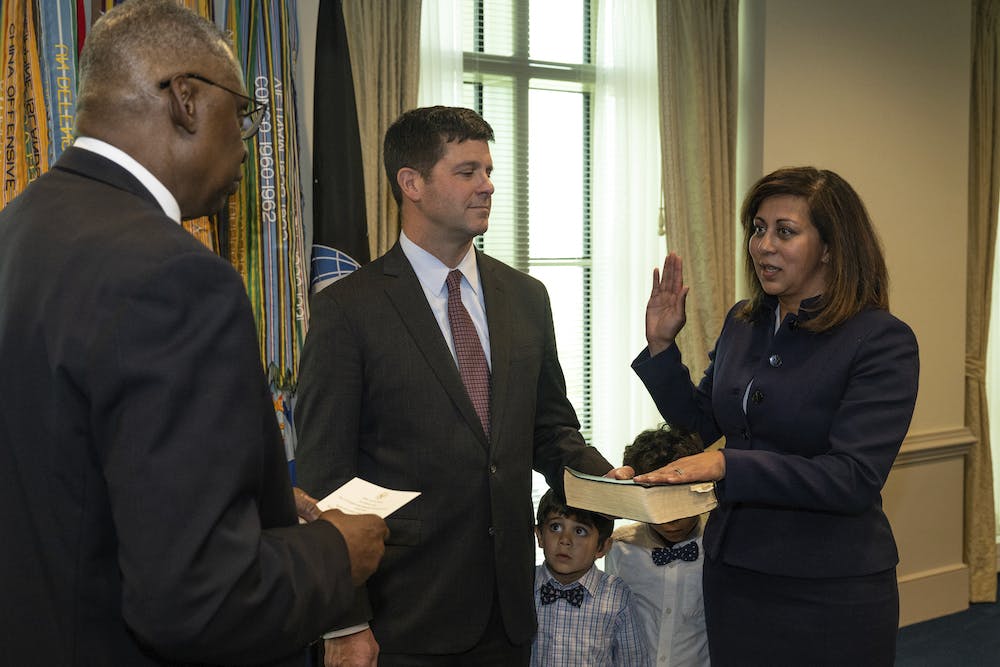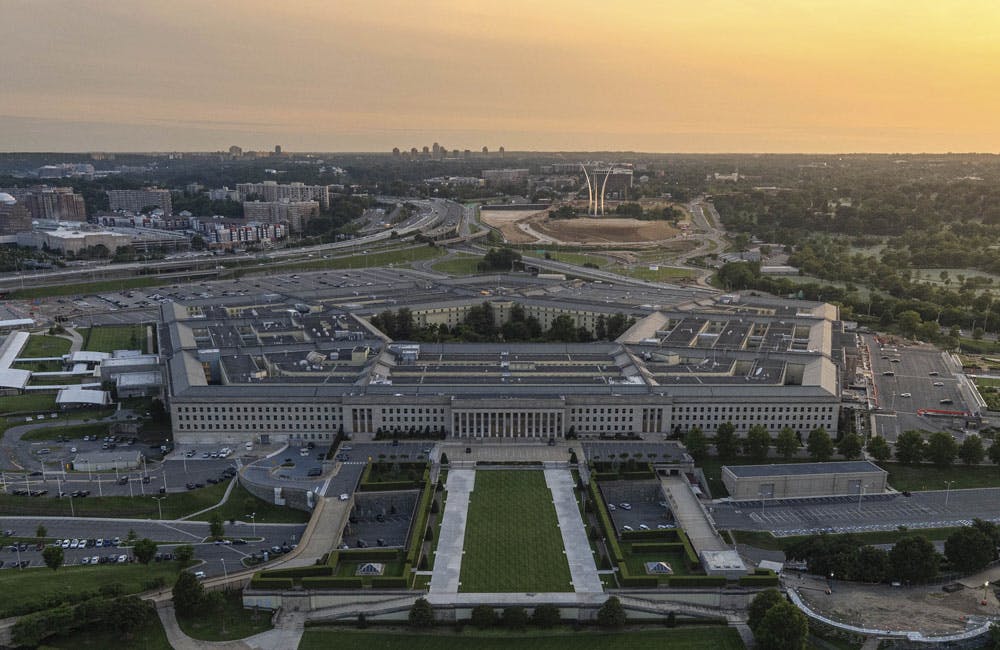Defense Board Remote Work Recommendations Can Bolster IT Workforce
The defense organization is also exploring AI testing, digital engineering and the formation of a Space Advisory Committee.

The Defense Department faces new recommendations from the Defense Innovation Board for a more remote digital workforce and culture.
The board, which met Tuesday in its first meeting since the mass move to telework during the COVID-19 pandemic, addressed next steps it will take on its artificial intelligence recommendations, digital engineering and the formation of a new Space Advisory Committee.
The DIB Workforce, Behavior, and Culture Subcommittee drew upon the pivot to remote work across the technology sector this year in its recommendations for DOD to standardize and integrate remote work to strengthen and diversify technical talent.
Jennifer Pahlka, the subcommittee’s lead, reported five major recommendations based on a report her subcommittee released this month:
- DOD should preserve and expand IT infrastructure upgrades and tools made available during COVID-19 to enable a more distributed workforce, including establishing a remote work plan for after the pandemic that incluides industry best practices.
- DOD should both continue to expand classified remote work options and explore new approaches to classified work. Particularly, DOD should invest in secure mobile devices and consider nationwide regional SCIF hubs for remote employees to work on or access classified materials.
- DOD should standardize and streamline efforts to recruit and retain remote civilian digital talent through adjusted policies and incentives.
- DOD should prioritize efforts that normalize a culture around remote work through playbooks or guides to educate leadership and personnel on best practices for remote work.
- DOD should consider remote work pilot programs to recruit and fill critical civilian technical talent gaps at priority organizations. From this small start, DOD can iterate and expand these pilots to a normative level across the enterprise.
The subcommittee’s recommendations considers recent successes in commercial work-from-home policies and in successful and preexisting remote work policies across DOD, such as with the Defense Digital Service and Platform One.
Underscoring these five recommendations are a focus on enabling DOD to remain competitive with the rest of the commercial technology market in recruitment and retainment, particularly focusing on showing a willingness to hire completely or partially remote personnel. To disregard this new reality of work would put DOD at a disadvantage in remaining competitive among other agencies and industry organizations, Pahlka said.
The recommendations also highlight how maintaining IT infrastructure and proper zero-trust and identity-management security practices are key to remote work.
“This really is an incredibly important moment,” Pahlka said, “not just to adapt, but to really take this energy and move forward to do all the things we need to do to have the talent base that DOD so desperately needs.”
Although these recommendations are intended initially for the IT workforce at DOD, the subcommittee argued these policies could also apply to other sectors of the military workforce and lead to more flexible working hours.
While the DIB voted unanimously to send these recommendations to top DOD leadership for review, the board also introduced initial thoughts and steps they have taken to start developing recommendations for testing, evaluation, validation and verification (TEV/V) of autonomous systems like artificial intelligence and machine learning.
After adopting DIB’s recommended AI ethics principles earlier this year, DOD tasked the board with developing appropriate and effective TEV/V requirements.
The DIB Science and Technology Subcommittee considered that AI requires unique testing requirements than typical software evaluation activities, as autonomous systems have uncertain outcomes that shift depending on their data input.
“AI systems depend on data, so their performance is only as good as the data used to train them,” said board member Daniela Rus, an AI professor at the Massachusetts Institute of Technology. “We have to focus both on how we train the system and how we test the models that come out as a result of running the systems.”
The DIB subcommittee is collaborating with industry and relevant DOD experts to establish a set of TEV/V recommendations by the end of this year.
The Science and Technology Subcommittee is also looking to aid DOD in digital engineering to increase the speed and capability of the military’s software systems. DIB member and California Institute of Technology professor Richard Murray highlighted that the DIB is exploring this by examining industry best practices for digital engineering and supporting digitally enabled ecosystems to engineer for design delivery and deployment.
To support these digital engineering areas, DIB will select a couple pilot program areas by November of this year.
“We’ll be doing an independent assessment of DOD’s progress on promotion of digital engineering capabilities through these activities,” Murray added.
The group also is forming a third subcommittee — the Space Advisory Committee — to aid DOD in its standing up of the Space Force, noted the board’s new chair, Mark Sirangelo. DIB is currently staffing the subcommittee to help the military in matters concerning cybersecurity and imaging technology in space.
This is a carousel with manually rotating slides. Use Next and Previous buttons to navigate or jump to a slide with the slide dots
-

How Tech Enables Environmental Justice at EPA
The agency wants to eliminate bias and establish new tech standards to reduce greenhouse gas emissions.
39m listen -

The CAIOs Leading Responsible AI Development Across Government
Since the White House's AI executive order, federal agencies are in the process of naming chief artificial intelligence officers.
7m read -

How TMF is Helping Agencies Accelerate Tech Modernization
The program launched a new AI pilot to expedite TMF applications as agency leaders urge more to consider applying for funds.
4m read -

Defense Board to Pitch Solutions for Closing Tech Talent Gaps
Defense Innovation Board members cite need to modernize people management the same way government modernizes technology.
4m read








